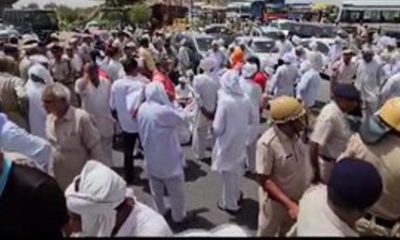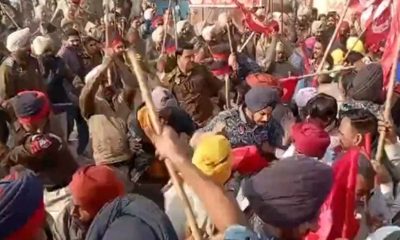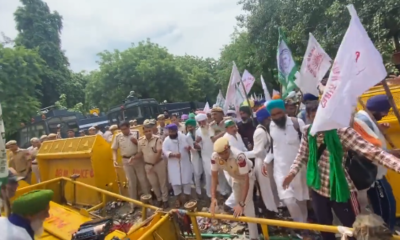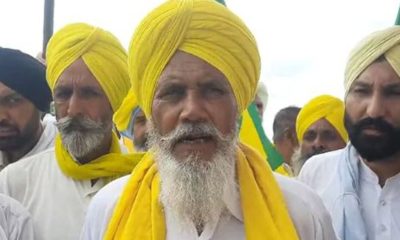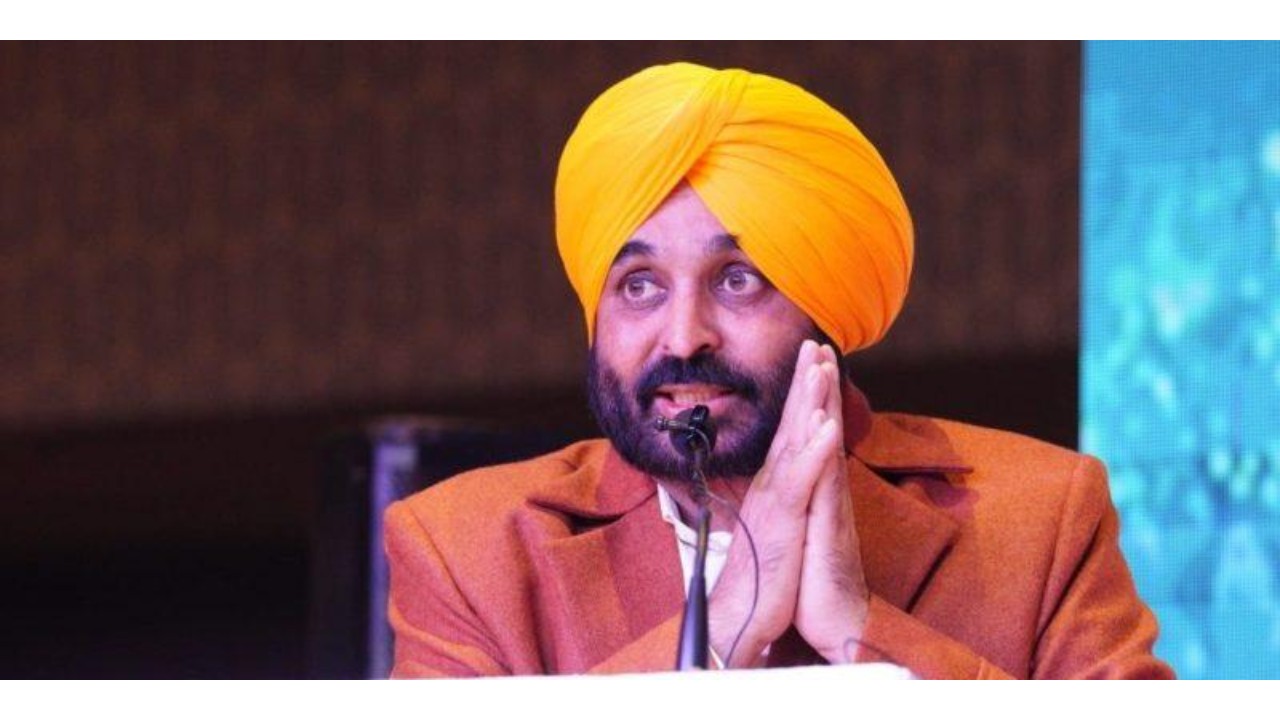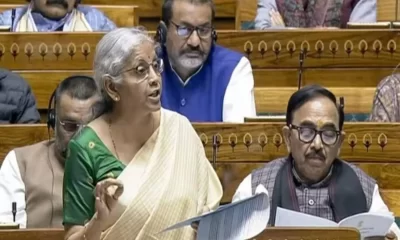India News
As UP farmers march to Parliament, security beefed up at Delhi borders
Section 144 has been imposed and all the borders have been sealed for a day.
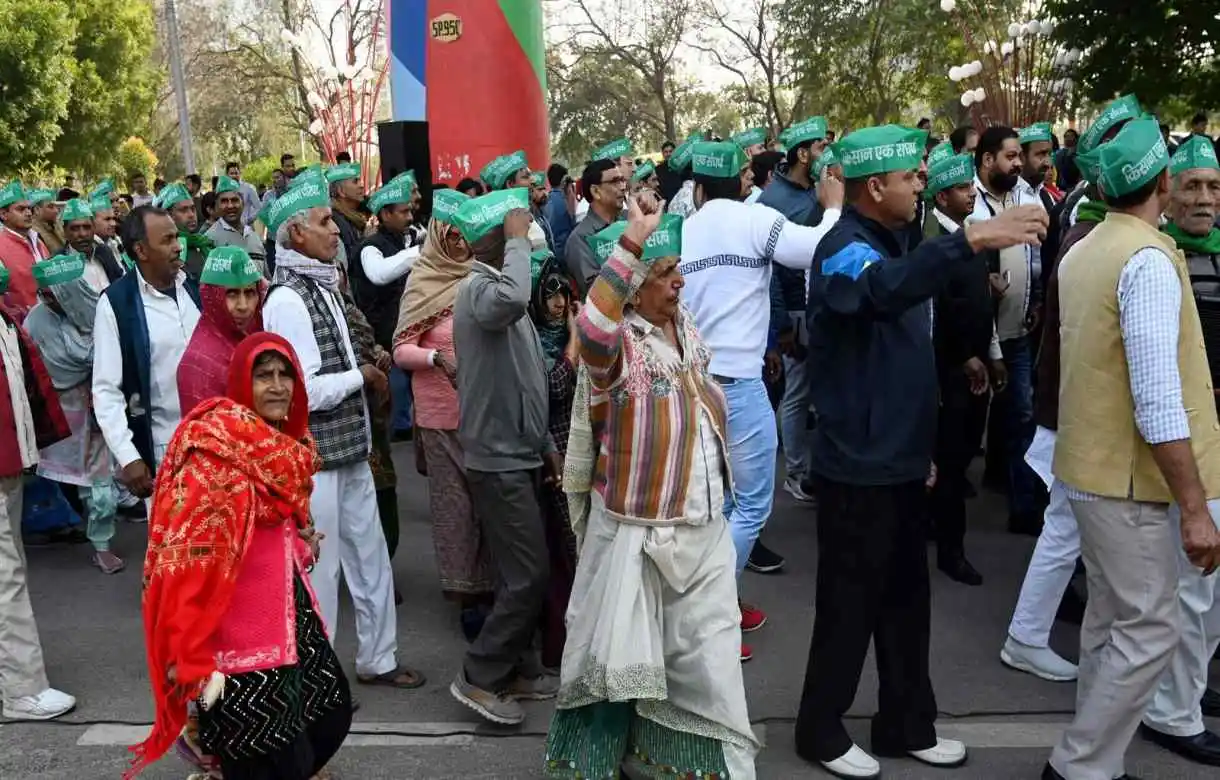
As Uttar Pradesh farmers announced a protest march to Parliament on Thursday, security has been beefed up at the Delhi borders. A major traffic was witnessed at the Delhi-Noida border, several two-wheelers and four-wheelers were struck in the jam at Sarita Vihar and also on the Delhi to Noida route.
Following the situation, Section 144 has been imposed and all the borders have been sealed for a day. According to DIG, Additional CP Shivhari Meena, heavy security deployment at all the borders and arrangements have been made so that the people do not face any trouble. Meena added security has been tightened, and officials are in talks with the farmers. All the vehicles are being checked, he further added.
Farmers in Noida and Greater Noida, protesting since December 2023, have demanded hiked compensation and developed plots against their land acquired by the regional development authorities.
To get their demands fulfilled, the farmers’ groups have called for a ‘Kisan Mahapanchayat’ and a protest march to Parliament in New Delhi on February 8.
The police on Tuesday said that there will be restrictions on February 7 and 8 under Section 144.
Gathering of people, unlawful assembly of more than five people and unauthorised processions, including religious and political are banned.
On Delhi’s borders with Haryana, the authority has made a similar preparation as they did in 2020 to block the farmers when they try to enter Delhi. Cement barriers have been brought in and sandbags were also spotted on the Shambhu border.
Haryana Police have also asked the farmers to avoid any gatherings and not to join the protest. They have warned the farmers of huge losses if they do.
The farmers in Haryana and Punjab have various demands, including a law to guarantee Minimum Support Price (MSP) for crops, pension for farmers, crop insurance and the quashing of FIRs registered against farmers during the 2020 protest. They also planned a tractor march on Tuesday.
India News
FM Nirmala Sitharaman tables White Paper on Indian economy in Lok Sabha, compares it with UPA records
The economy was in a fragile state, public finance was in bad shape, economic mismanagement and it was a crisis situation.

Union Finance Minister Nirmala Sitharaman on Thursday tabled a White Paper on the Indian economy in the Lok Sabha and compared it with the United Progressive Alliance (UPA) government’s records.
Tabling the White Paper, Sitharam said when BJP came to power in 2014, the economy was in a fragile state, public finance was in bad shape, economic mismanagement and it was a crisis situation.
In the White Paper, the Modi government mentioned that the UPA Government inherited a healthy economy ready for more reforms but made it non-performing in its ten years.
The Modi-led BJP government has said that the UPA government in its quest to maintain high economic growth by any means after the global financial crisis of 2008, had Worsen it and severely undermined the macroeconomic foundations.
The White Paper presented by Sitharaman further underlined the inflation in the country between 2009 and 2014. There were high fiscal deficits for six years between the Financial Year 2009 and 2014 that heaped misery on ordinary and poorer households.
Over the five-year period from 2010 to 2014, the average annual inflation rate was in double digits, adding that, Sitharaman further mentioned that the average annual inflation in the economy was 8.2 percent between 2004 and 2014.
According to the White Paper, the banking crisis was one of the most important and infamous legacies of the UPA government. The White Paper also mentioned that the GNPA ratio in Public Sector banks decreased from 16.0% to 7.8% during the tenure of the Vajpayee-led NDA government.
The ratio, including restructured loans, had reached 12.3% in September 2013, mainly due to political interference by the UPA government in the commercial lending decisions of public sector banks. Worse, even that high percentage of bad debts was an underestimate, the Modi government claimed.
The White Paper also highlighted that when the BJP government took charge in 2015, the pace of national highway construction languished at 12 km/day. The pace of construction has risen more than 2.3X to 28 km/day now. While the UPA government laid nearly 16,000 km length of national highways in their 10 years of governance, the BJP government has already done at least three times better than this in its nearly 10-year rule, said the government in a White Paper.
India News
BJP dismisses Rahul Gandhi’s claims on PM Modi not being OBC
PM Modi was not born in the OBC category but in the “Teli” caste in Gujarat. He said that the community was given the tag of OBC in the year 2000 by the BJP.
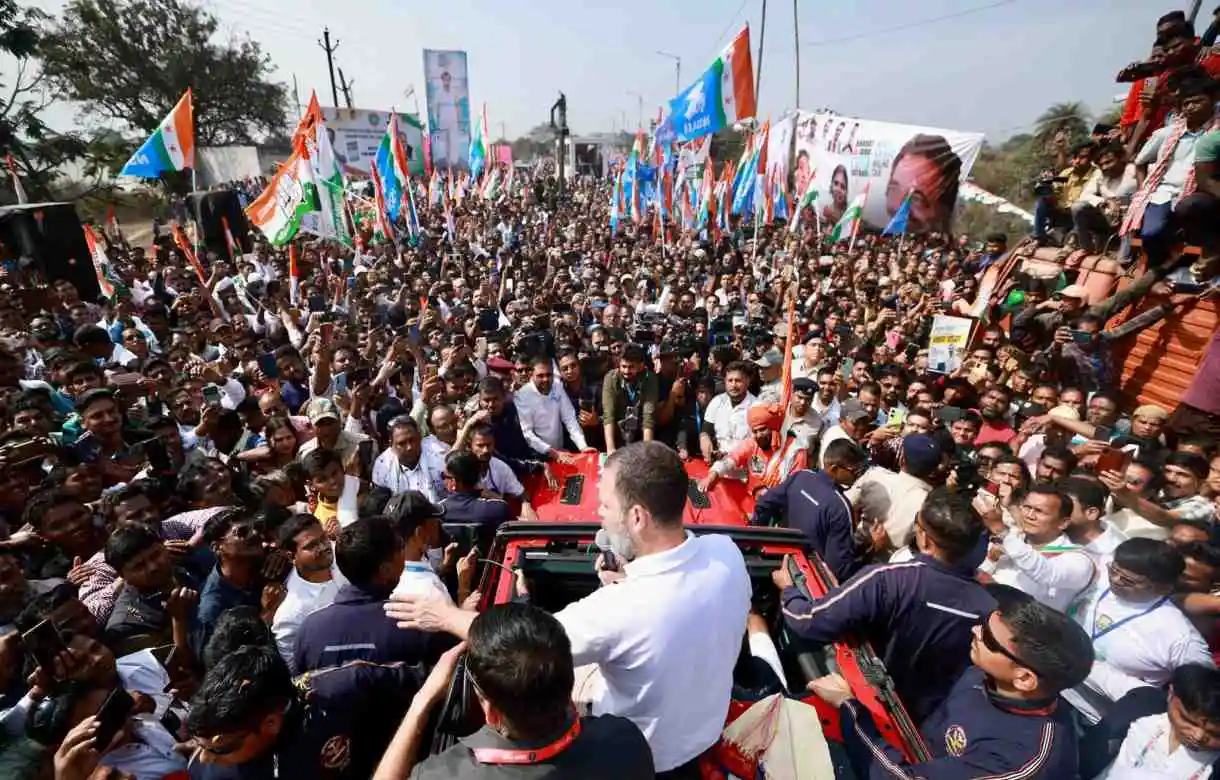
The Bharatiya Janata Party (BJP) on Thursday dismissed Congress leader Rahul Gandhi’s claims that Prime Minister Narendra Modi does not belong to the Other Backward Class (OBC) but the general category.
Responding to Gandhi’s claims, BJP leader Ravi Shankar Prasad asked him to stop making such shameful and baseless statements. In a scathing attack, Prasad asked has this become Rahul Gandhi’s level. He said the poor people, Scheduled Castes, Scheduled Tribes and Backward Communities in this country considered Modi their leader.
Addressing the public during his Bharat Jodo Nyay Yatra in Odisha’s Jharsuguda today, Gandhi said that PM Modi was not born in the OBC category but in the “Teli” caste in Gujarat. He said that the community was given the tag of OBC in the year 2000 by the BJP.
Gandhi said Modi was born in the General caste. Gandhi also said that PM Modi will not allow caste census to be conducted in his entire life because he was not born in OBC, he was born in General caste, the Congress leader claimed.
He continued attacking PM Modi asking people to tell the BJP workers that PM Modi lied to the entire country about his caste and that he belongs to the general category and not the OBC.
Earlier, PM Modi called himself “Sabse Bada OBC” in Parliament. He attacked Congress saying the party which has no guarantee on its leaders, on its principles raises questions about the Modi government. The party during its rule did not decide between nationalisation and privatisation, it went on giving the Bharat Ratna to the family members and naming roads after family members, which pained PM Modi.
PM Modi also brought up the caste reservation in his speech and said if Baba Saheb had not been there, they would have not got a reservation. He went on to say that Congress has been their biggest opponent of Dalits, Backwards and Tribal people.
India News
India scraps Free Movement Regime with Myanmar to ensure internal security
FMR, an agreement, which allows people residing close to the India-Myanmar border to venture 16 km into each other’s territory without a visa.
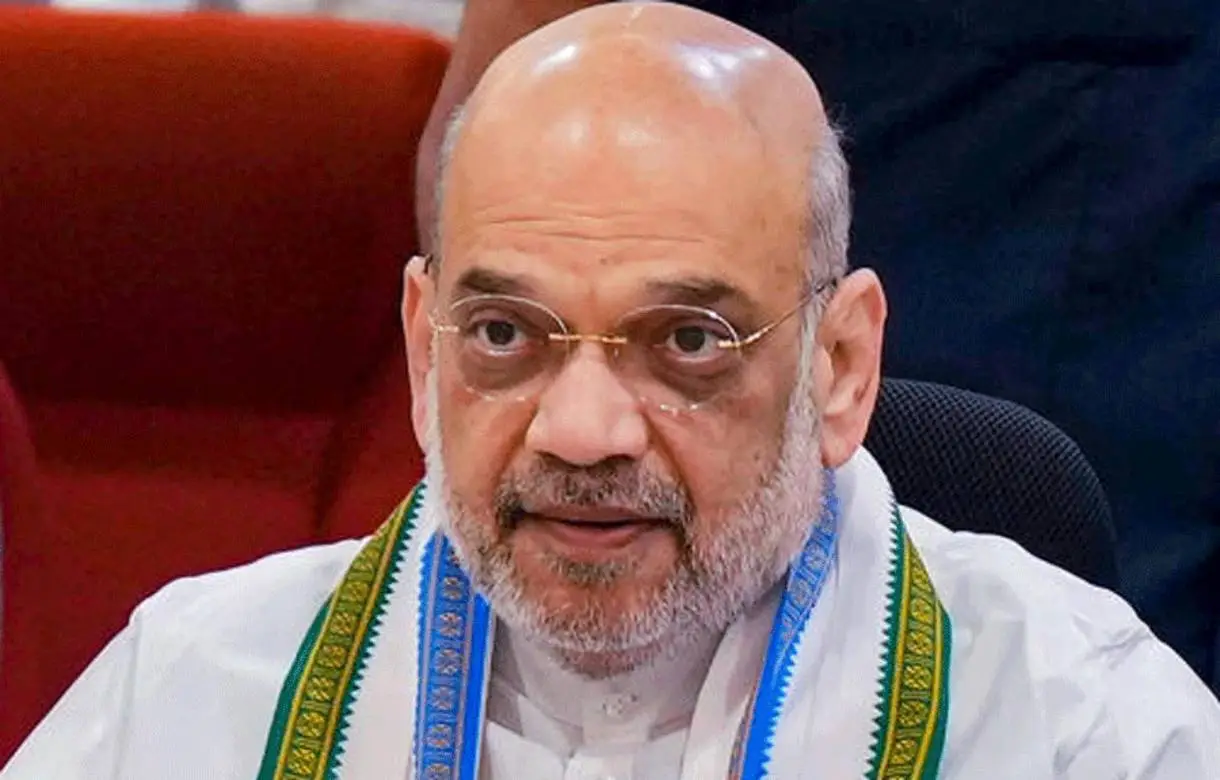
The government of India has scraped the Free Movement Regime (FMR) with Myanmar to ensure the internal security.
The Union Home Minister Amit Shah on Thursday said that the ministry has decided to scrap the FMR between India and Myanmar to ensure the internal security of the country and to maintain the demographic structure of India’s North Eastern States bordering Myanmar.
Shah further said although the Ministry of External Affairs currently in the process of scrapping it, the MHA has recommended the immediate suspension of the FMR.
He callled this decision, a Prime Minister Narendra Modi’s resolve to secure India’s borders.
On January 20 last month, Shah announced that India will soon fence the border with Myanmar to restrict the free movement into the territory of India.
The decision to barricade the India-Myanmar border by the MHA came after the movement of Myanmar soldiers, in large numbers, into Indian territory was reported.
Addressing a passing out parade of Assam Police Commandos, Shah said India’s border with Myanmar to be protected like the border with Bangladesh.
According to reports, around 600 Myanmar Army soldiers have crossed the border and moved into India in recent times. The report further suggests that they took refuge in Mizoram’s Lawngatlai district after the capture of their camps by the Arakan Army militants, a group that operates in the western Myanmar state of Rakhine.
After installing a fence along the border, the Free Movement Regime (FMR) between the two countries ended. People living close to border regions will now require a visa to enter the other country.
FMR, an agreement, which allows people residing close to the India-Myanmar border to venture 16 km into each other’s territory without a visa.
A 1,643 km long border between India and Myanmar passes through Indian states such as Mizoram, Manipur, Nagaland, and Arunachal Pradesh. The mentioned stated comes under the FMR, which came into effect in 2018 as a part of India’s Act East policy.
-
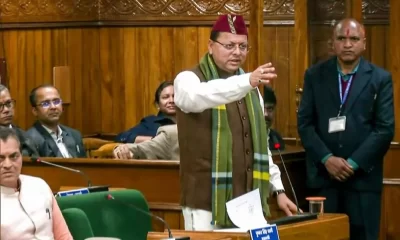
 India News24 hours ago
India News24 hours agoUttarakhand Assembly passes Uniform Civil Code Bill, becomes first state in India to pass such law
-
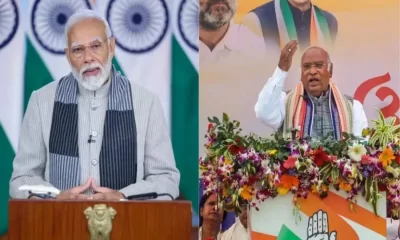
 India News8 hours ago
India News8 hours agoCongress to present Black Paper against Modi government’s White Paper in Parliament
-
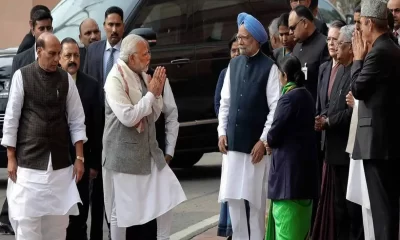
 India News7 hours ago
India News7 hours agoPM Modi praises former PM Manmohan Singh, says he worked in wheelchair
-
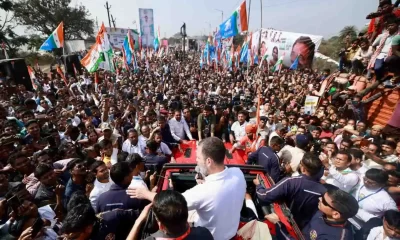
 India News2 hours ago
India News2 hours agoBJP dismisses Rahul Gandhi’s claims on PM Modi not being OBC
-
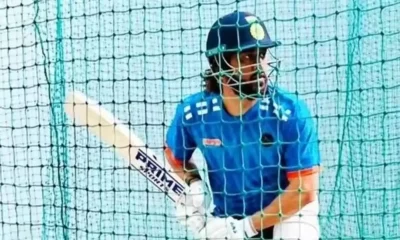
 Cricket news2 hours ago
Cricket news2 hours agoIPL 2024: MS Dhoni promotes childhood friend’s sports company with new bat during training session
-
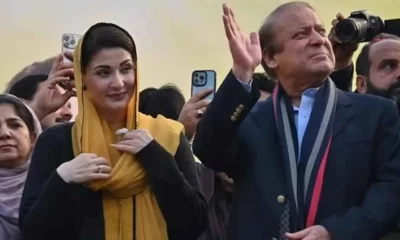
 Latest world news30 mins ago
Latest world news30 mins agoPakistan Elections 2024: Voting concludes amid violence, mobile internet ban
-
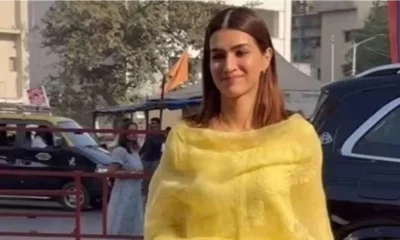
 Entertainment4 hours ago
Entertainment4 hours agoKriti Sanon visits Siddhivinayak Temple ahead of release of upcoming film Teri Baaton Mein Aisa Uljha Jiya
-
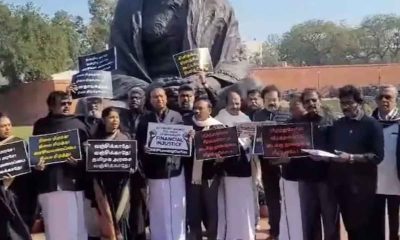
 India News8 hours ago
India News8 hours agoKerala’s Left Front, Tamil Nadu’s DMK protest against Central government over discrimination in allocation of funds in Delhi

